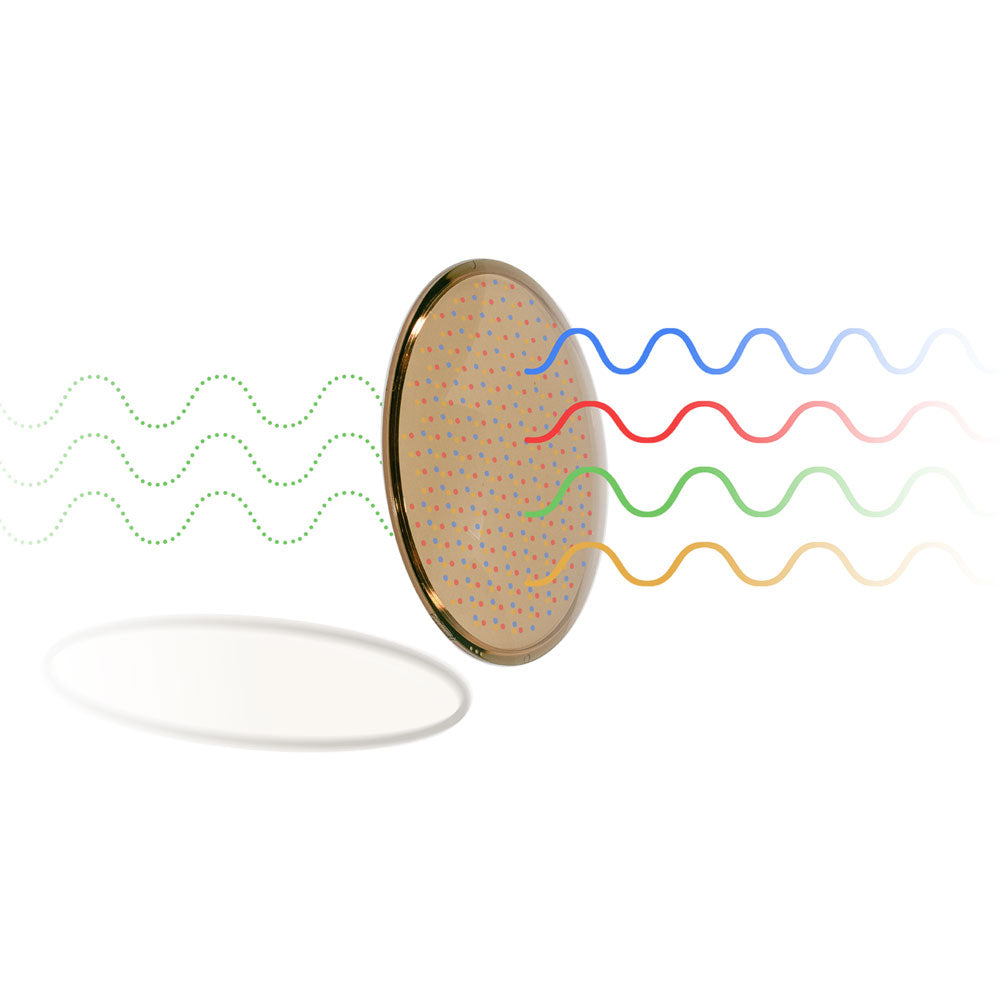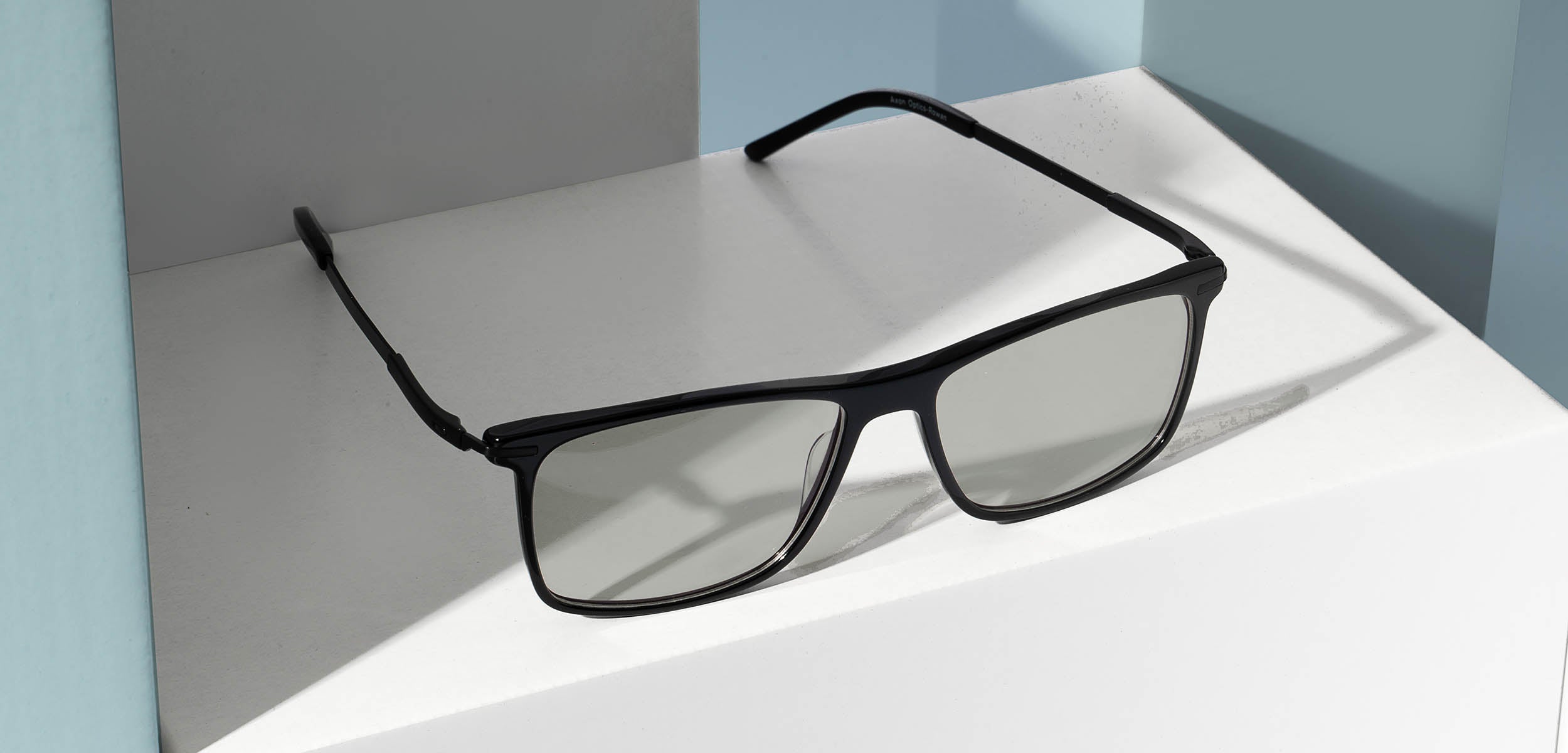
Glasses for Vestibular Migraine
You get dizzy? Like, really dizzy, where you can’t do much if you can get up at all.
It's not a “too much spinning on the playground equipment” dizziness. No, it comes out of the blue and can last several minutes or drag on for days and you have this feeling of spinning or moving.
On top of all that, you may have a headache, see flashing or shimmering lights, and experience a sensitivity to sound or light, or both.

Axon Optics therapeutic eyewear powered by Avulux® Migraine & Light Sensitivity Lenses may be able to help with vestibular migraine. Research studies have shown that glasses for migraine can manage the light that's been shown to trigger and worsen migraine attacks.
Axon Optics migraine glasses were created by Dr. Bradley Katz, MD, Ph.D., who is a neuro-ophthalmologist. Dr. Katz’s research expertise includes light sensitivity (“photophobia”) and neurologic conditions associated with light sensitivity, such as migraine.


Visit these posts to learn more about light sensitivity and how Axon's glasses work.
For information and resources that support people with vestibular impairment, visit VeDA's website.
Glasses for Vestibular Migraine Reviews
Taryn
Allowed me to return to normal life.
I had vertigo for 9 months with no relief and these glasses are the only things that have allowed me to go back to my life and return to my place of work.
Karen
Double vision is gone
I suffered a TBI that mostly impacted my vestibular system. I was having balance problems, had double vision, was very light sensitive, and had horrible headache. My neuro-ophthalmologist told me about Axon Optics and it has changed my life.
Jennifer
Part of my daily life.
As a sufferer of vestibular migraines, Axon Optics eyewear is a part of my daily life. The glasses are so lightweight and comfortable I often forget I even have them on!! I get a ton of compliments on how attractive they are and how they complement my face. Great product!

Why Axon Optics Glasses For Vestibular Migraine?
- Created by a neuro-ophthalmologist and researcher named Dr. Bradley J. Katz, who has been treating patients for over 20 years.
- Axon Optics glasses are powered by Avulux® Migraine & Light Sensitivity Lenses, the only lens clinically proven effective through an independent, double-blind, randomized, placebo-controlled clinical trial.
- Founded by a neuro-ophthalmologist, photonics researcher, and ophthalmic entrepreneur.
Axon Optics Powered By Avulux® Migraine & Light Sensitivity Lenses

Light Weight
Axon Optics frames are made of light weight materials to reduce the physical stress of wearing glasses.
Titanium Temples
Axon Glasses are made with high-quality materials including titanium temples to ensure that your glasses last.
Clinically Proven Lenses
Axon Optics are powered by Avulux® Migraine and Light Sensitivity Lenses - the only lens clinically proven to effectively manage the impact of light by filtering harmful light during a migraine attack.
No Color Distortion
Avulux® Migraine & Light Sensitivity Lenses do not distort the wearer‘s color perception.

Do Tinted Glasses for Vestibular Disorders Work?
Since everybody is different and unique, the best way to determine if our glasses will help is to try them.
However, the research shows that light triggers up to 60% of migraine attacks and specific wavelengths have been showing to worsen migraine symptoms. Managing light is an important part of living healthily with migraine.
If you're one of the few that remain unsatisfied, we offer a generous 60-day return policy.
60-Day Money-Back Guarantee
Try Axon Optics powered by Avulux® Migraine & Light Sensitivity Lenses for 60 days. If you don’t experience an improvement in quality of life or management of the negative impact of light, send them back and we'll issue a quick refund!
Shop All Axon Optics GlassesVestibular Migraine Symptoms
The most obvious symptom of vestibular migraine is dizziness.
It isn’t necessarily continuous, it tends to come and go. You may feel dizzy for five minutes, several hours, or up to three days. The truth is, around 40% of people with migraine also experience some type of vestibular problem at some point during the attack.
Specific vestibular symptoms include:
- Spontaneous vertigo
- Positional vertigo
- Vertigo or dizziness caused by head motion
- Postural unsteadiness
- Oscillopsia (objects in the field of vision appear to move or oscillate even though they are still)
- Vertigo or dizziness induced visually
- Directional pulsion (falling in a certain direction while walking, standing, or sitting)
That is the symptom that most people look for first, but that isn’t the only symptom – and it isn’t enough for your doctor to make a diagnosis either. Other vestibular migraine symptoms include:
- Nausea
- Vomiting
- Problems with balance
- Disoriented or confused
- Hypersensitive to sound
- Photophobia or light sensitivity
- Severe sensitivity to motion – dizziness is increased when you move your body, eyes, or head (often increases nausea as well)
- Feeling of being unsteady, like you are in a boat that is rocking on rough waves
While it is possible to experience dizziness and problems with your balance without any type of headache or migraine, it is also possible to experience vertigo symptoms at any point of your migraine – before an attack, during it, or after.
A study published in Neurology Advisor found that more than 70% of their test subjects had anxiety while more than 40% had depression. Additionally, 26% had insomnia. It is difficult to tell if these are comorbidities that existed prior to the migraine attacks, if the attacks brought them to the surface, or if the attacks caused them. Some people have migraine attacks for years, only to have the vertigo symptoms begin later in life. If you have a history of migraine and you have vertigo, even if they don’t occur together, it is likely that you have vestibular migraine. Also, while this type of migraine is more prevalent in older adults, children can get them too.
Specific wavelengths of light have been clinically shown to trigger and worse migraine attacks.
Axon Optics glasses are powered by the Avulux® Migraine and Light Sensitivity lenses. These lenses proved clinical and statistical significance in a 2020 study conducted on subjects with episodic migraine. Avulux lenses precisely filter up to 97% of harmful blue, amber, and red light while allowing soothing green light through. Wearing Axon Optics containing Avulux lenses, as part of a healthy lifestyle, may help people living with migraine.
Axon Optics powered by Avulux® may be worn either indoors or outdoors without causing chronic dark adaptation.
Visual snow is a condition that is considered to be relatively rare, but obtaining exact statistics is not easy because many patients don’t realize they have it or don’t realize that it is not normal.
Over the years patients have faced many challenges. It was not regarded as a “real” condition by many doctors. Visual snow patients were often treated similar to those with chronic pain and conditions like fibromyalgia. Many times they were told that it was “all in their head” or the result of past or present illicit drug use. The clinical term for visual snow is aeropsia but it may also be referred to as “visual static” or “positive persistent visual disturbance.”
Some of the more common treatments include vision therapy, medication, diet, and precision tinted glasses. While Axon Optics glasses powered by Avulux® Migraine & Light Sensitivity Lenses block the light shown to trigger light sensitive migraine attacks. Our glasses have a 60-day return policy should you find they're not benefiting you.
In order to fully understand the function of migraine glasses, it is important to first understand the nature of migraine. Make no mistake, a migraine attack is much more than a headache. Migraine attacks themselves are incredibly painful, but these attacks often come with other symptoms — such as light sensitivity — that can make them excruciating.
Treatment can be a challenge too, because everyone experiences their attacks in unique ways. The symptoms and triggers are as varied as the people who get them. However, there are a handful of triggers that are pretty consistent with the majority of migraineurs, and light sensitivity tops the list.
Since light sensitivity is reported as both a common symptom and a common trigger (especially when it comes to glare), it’s no surprise that a controlled study found that bright lights caused headaches in 29% of those surveyed, and aggravated headaches in 73% (along with other factors like skipping meals and stress).
To some extent, everyone is sensitive to light. For example, looking directly into the sun would be painful for anyone. But most people with migraine disease are hypersensitive to light. A sunny day that
delights most of us can be excruciating for them, but even indoor lighting can hurt. It’s this degree of light sensitivity that sets them apart. In fact, more than 90% of people with migraine disease are
sensitive to light (Source: Evans et al).
So, the natural conclusion here would be to block the light, right? Well, that’s easier said than done. For decades, migraineurs would retreat to darkened rooms or slip on dark sunglasses in order to ease their symptoms or keep migraine attacks at bay. While these efforts seemed to work a little, they did not prove to be long term solutions.
And the research began.
The good news is that research shows only certain wavelengths of light are likely to aggravate migraine (Source Katz B). So, it logically follows that finding a way to block those particular wavelengths should help.
Migraine glasses filter the light that has been implicated in
triggering and aggravating migraine attacks. The lenses are specifically designed to keep the “bad” light out and let the good light in. No substantially altered vision, no dark-adapted eyes, just light protection. Axon Optics containing Avulux® migraine lenses have been shown to help over 90% of wearers resume their daily activities.
If you are eager to learn more about migraine glasses, check out our guide here.
Every migraineur is different. You are unique. Your situation,
environment, and the way you react are all uniquely yours. With that said, you need to find our own comfort level and what works best for you.
Some people wear their Axon Optics migraine glasses all the time. Others wear them only in situations where they feel light sensitivity — such as under fluorescent lights at work or going into a store. There are as many user variances as there are users.
Our research shows that 35% of users wear their glasses all the time, and more than 60% wear them most of the time.
Note: Due to the precision filtration properties of the Avulux lenses, they are not suitable for driving.


